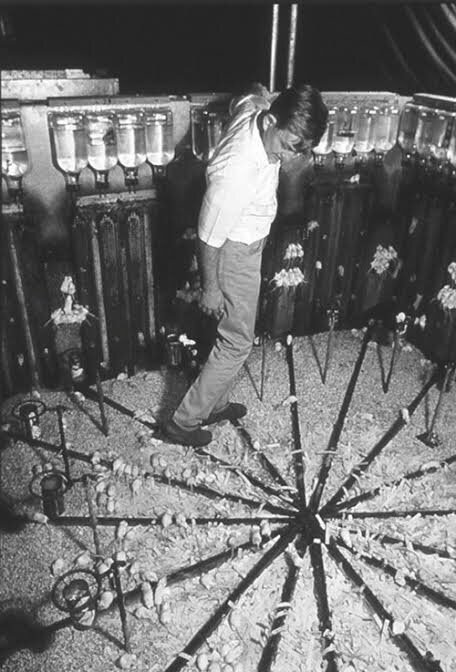About This Cult
Why things are the way they are? Thinking is an activity considered lascivious for those who live in peace. And they are right. Thinking comes as an attempt to comprehend reality in a disruptive way; deconstructs reality, questions phenomena, and acts that many gave for granted. Thinking is to the cognitive process like the wood is to the fire.
An aphorism that I consider vital was said by Nietzsche: "One is always wrong. with two, the truth begins".
Let us question and debate whatever we consider important and annoying in order to get closer to whatever truth may mean; the task of all those who don't consider themselves wise enough
- What's new in this cult
-
vamprina joined the club
-
propanepunk joined the club
-
What I have learned is that fancy vocabulary may be a hindrance most of the time. It is a superb hability to handle complicated topics using regular words. Man, polítical stuff was made to disguise power as wisdom. In other words, the person or polítical party with the highest Power will be the one considered as wielder of the Reason or Truth. Not because of the arguments involved, but the capability of Violence that can handle and spread compared to the adversaries. So, yes. Politics is a ground to fight wars, not to dialogue and achieve a communal Truth. And yes. In the end, it is all about perspective. It is cool to share yours and to learn other's. Thank you for sharing 🤘
-
MERRY CHRISTMAS! This cult it's alive, it's alive, it's alive! Well hello there. I'm not much into science and politics so much so I didn't understand your response to well to be honest, I don't like to be a liar acting as if I knew what you were saying. Anyways my vocab is not up there with yours also! 😎 I tend to stay away from politics because its driving everyone to hate each other, just like science I think.😭 Here is where I'm coming from. I believe in Christian philosophy.😇 There doesn't have to be a but if you are correct! Eh? I don't want to sound like I know everything because the Holy Bible says you will not know everything while on Earth. There is a book! I mean if a person is Christian or whatever you choose to believe you get different viewpoints concerning reality and how you feel about it, what you decide to do about it and it just goes on that someone suffering might say why me and get totally different answers. Eh, my two cents of knowledge!
-
OK. First than all, happy hollydays! Second: at last this space is Alive, once again! Nice! It is cool to read What you have to say Third: My man, I so agree with you if I stand on Wisdom or on an Eastern point of view. But! (yes, in philosophy there is always a But), philosophy is quite a previous step from wisdom. The occidental ways are ecceptic and aligned towards materialistics points of view. I mean evidence, science, stadistics and all that burocratic crap that pretends to build and "objective" reality for everyone. That is Why the philosopher questions What has been given as true. The wise knows from his perspective and share it to the World while the philosopher seeks to share his/her impressions of the World to build an own perspective. So, having said so... the intention is to question since this cult pretends that We all are seeking. What do you think about that? Maybe i'm wrong
-
I don't ask why anymore everything happens for a reason? 😎
-
introvert joined the club
-
dwen joined the club
-
ShadowBliss joined the club
-
Hello. Do you like to read? Perfect, you will not waste your time with this post. Do you hate reading? I recommend that you stop here to stop what you're doing and find something better to do with your limited time. Remember that you are mortal. Still here? Good. Let me tell you that just over a year ago I started this cult to stimulate the transmission and refinement of philosophical knowledge. I know that starting a philosophy cult is just as interesting as starting a math cult, but at the same time, I know that both are unfortunately unpopular topics because those who teach such subjects, as a rule, either don't know enough about them to inspire students to go deeper into theoretical and practical purposes in these fields of study or, worse still, they teach them poorly precisely because they know the power they offer to those who unravel and appropriate their content. Do I consider myself the philosophical authority of this site? No. What I do think is that I can make the knowledge I have available to the community with the intention that each member further develops or discover their own system of thought, which can perfectly be enhanced with the systems already developed by brilliant minds. that have existed throughout human history and which I have read (well, not all of them, but some of them). That is exactly why I have titled this post as you can notice. What I believe is that it is possible to use this space to develop thought together, but without the intention of enthroning an authority: everything is subject to questioning and rigorous analysis. Does that mean that there are many truths and not just one? Are all truths equally valid? Logically or mathematically, think for a second if 2+2 can have some other quantity than 4 as the answer. Well, if you value scientific advances, like the cell phone or the computer that you currently use to read what I have written, You will probably come to the conclusion that 4 is the only possible number that can be offered as an answer in this easy operation. For the prince of the philosophers, according to Deleuze, I mean Baruch Spinoza; as we get to know the origin or causes of the phenomena that we want to understand to increase our power, or ability to persevere in the world, the closer we get to objective truth; scientific truth, I would say. As a curious fact, Spinoza reached a philosophical conclusion regarding the functioning of the brain and our emotions 350 years ago. Data that neuroscience is now validating, although refining details by much. However, all starting points are valid. That's the difference: all the rivers goes to the sea. So it does not matter if your epistemology is based on the study of magic, on wild chaotic, and almost schizophrenic thoughts, on religious fundamentalisms, on a political inclination (which is almost the same as the previous one), or if you believe that the LSD that you ate last Friday revealed to you the ultimate truth: all knowledge that collides with other knowledge can only be refined within a dialectical process. This requires a lot of debate and being ready to change your mind, especially since logical bases and arguments must be used to support the ideas. In each debate, we all die a little and reborn stronger. That's why it hurts not to be right, but it's part of destroying a previous dogma: a previous world in order to create a new one. If you really think it is impossible to mix such different currents of thought, I recommend that you read the work of the philosopher Walter Benjamin: he created quite an interesting thought by mixing Jewish messianism, Marxism, and German romanticism. A genius, like all, sui generis. So… anarchy or democracy? What model increases the power of a society and why? It is obvious that here the Oligarchy is not counted, nor the Tyranny, nor the Plutocracy, nor the Timarchy nor any fascist structure because the answer is obvious (Unless you are a covert fascist, a worshiper of Hitler, which I doubt). This is the first question I propose you answer as you see fit. This with the certainty that I will answer back, at least. If someone else joins, this can only get better. The topic is finished until the participating parties are satisfied with the results. That is, until a more robust truth has been constructed, one that is demonstrable. Before I say goodbye, I offer an apology. English is not my native language and I have to translate everything I write. If I have any grammatical errors, please help me to correct them. Greetings and... shall we begin?
-
Windigo joined the club
-
babytiff joined the club
-
Jack joined the club
-
AlexanderVampy joined the club
-
AkashaWolfhaven joined the club
-
s3maph0re joined the club
-
kovuchaos joined the club
-
Have you ever considered whether what you long for is a product of a desire of your own or you want what you want because someone else has told you that you want it?
-
We know what we do. What we do not know is the reason. Myriads of imperceptible, primitive impulses dictate our becoming. The idea of a Self seems to emerge as a residue of a series of events made conscious as soon as they have already occurred. How would it be possible to have a Self that can worry about filling the cupboard without having first experienced hunger? Could we say that the desires that beset us are nothing more than past events, which we seek to recreate in the most immediate possible future? Everything would depend on the urgency we have to relive the past in that fleeting moment that we call the present. And while we mention it, it is already melting into our gallery of memories, powdering itself along with thousands of other accumulated memories. I wonder if we are something more than our wishes; than the desire to repeat the preterite over and over again, but with slight variations so as not to fall into monotony. Will we be something more than appetite, than sleep, and the urge to mix our DNA with that of another person? Could it be that the above engenders everything we are capable of wanting? Are these three matrices the only possible ones within our field of action? And if so, why have we decided to congregate in this virtual space? What thing from the past do we seek to revive in this corner made up of ones and zeros, then turned into a forum full of people of about the same age, with their no less important exceptions? It is obvious that I have uncertain answers, but I would like to know what you have to say.
-
Rcxy joined the club
-
mehldah joined the club
-
"The old gods died laughing when they heard one of them say that he was the only one" -F. Nietzsche To speak of God is to speak of the truth. But of what truth and of what god? From that of the Aztec god of war, Huitzilopochtli? Or that of the Norse sun god, Baldr? Nobody thinks of them when the word "god" or the word "truth" arises. So, is it not an act of naivety not to assume that, in the West, the word god has almost been monopolized by the Christian god? Could it be that the truth, which is nothing more than the installation of the most efficient lie, has been monopolized in the same way? In one of Plato's texts, you can read the discussion that Socrates has with the soothsayer Euthyphro. Both try to define what are holiness and justice. Euthyphro does not take long to point out that the holy is that which pleases the gods. "It is not true that it is impossible to please all the gods, because what delights one arouses animosity to the other one?" Socrates asks his interlocutor. Greek polytheism appears as a repertoire of different divine visions, which coexist at the same time. It was a range of different morals; of simultaneous contingent truths, which did not need to please one another. The literary Trojan War was started by a ridiculous competition between the goddesses Hera, Aphrodite, and Pallas Athena, which Ares's mistress eventually won. Similarly, Apollo and Dionysus shared believers: by day, the Greek polis worshiped the solar god related to the bureaucracy of life, and, at nightfall, the orgiastic god of wine was worshiped. The guilt, which the difference usually engenders, seems to be one of the non-existent or rare problems under the Greek polytheistic system: if someone did not worship a popular god, consequently he worshiped another, not necessarily evil, for being less crowded, as in the case of Penia, the goddess of poverty. Socrates was sentenced to death for failing to worship any of these, which complicates the matter. Before continuing, I would like to make it clear that the noun god can also be a synonym for morality; of tradition. It is not intended to speak in favor of the existence of the Olympians or to resume a cult towards them. The gods are archetypes of diverse customs. On the other hand, Christian monotheism established and normalized only 1 interpretation of reality: it institutes 1 couple to love, 1 nation to serve, 1 moral, 1 single cause, 1 single effect, 1 Whole, which is not composed of individualized entities that are interconnected, but by a social body that must lean towards moral homogeneity, which will be called reality and which comes from the law; from the only creative source. Monotheistic reductionism ignores the complexity of micro and macrocosmic processes to give rise to a univocal reading, which discards reason to enthrone faith as the only translator device of the universe, as if the force of a current of air could be calculated or the weight of an apple with some variation of the metric system. Maybe monotheism is the Big Brother of 1984 and its thought police are scattered within its bureaucratic behavior. Violence, such as that exerted by Emperor Constantine or by the Holy Inquisition, emerges when 1 worldview does not allow others to flourish and establish alternative versions of reality for political reasons: of power. Could it be that those who decide to adopt a monotheistic system to interpret its socio-historical context endorse a single belief more because they fear reprisals, suffered by those who contradict the idea of the ruling dogma than because of a conviction nested in the depths of their people? It is well known that until Christianity copied the idea of hell from other religions, its cells of believers multiplied more efficiently. Well... This is just another idea on the table.
-
What was there before the Big Bang? How to solve the Hard Problem of consciousness, which neurology still does not know? Perhaps, in the place where these unknowns find their resolution also lie the answers to all the unanswerable "why". "Why" is the worst weapon of philosophy. And why? Because it dismantles the practical Self to direct us towards the existential Self. Any answer, which is considered definitive within a tradition, can be disjointed with this question. "Why" is the favorite resource of those who have written the history of humanity by challenging the morals of their time along with the daily life that the latter implies. Why do you believe what you believe? Since you got an answer, add another "why" to it. The process can be repeated until one is faced with a kind of Nothingness. Reality is like a Matrioshka. The final "why" is undeniable when the last figure contained by the Russian doll is lifted, revealing an unpleasant emptyness. Is this true? or there is a definitive answer that may enlighten every "why"? And why?
-
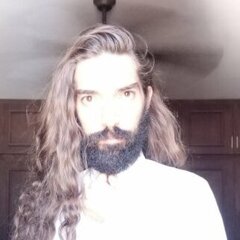
What things make you think?
Diavolo replied to Diavolo's topic in Philosopher's Square's 2021 Topics
Sure. It would be more of a sociological or historical endeavor to determine how the base of any hierarchy decides to fight to achieve better conditions of life. But let's analyze briefly both examples you put on the table: The mise are subjugated to an external operating force that conditions their environment in such a way the animals can not oppose resistance. The experiment was designed to give them no chance to overcome the trial. Life is not always that way. Let's get radical. The experiment doesn't proportionate them enough time to evolve, to develop a complex language, to build systems of belief, and anything that can be perceived as a sign of civilization. Let's imagine the experiment proceeds during centuries in such a way that mise develops consciousness, enough to realize that among them are no Eloi; enough to comprehend that the Eloi are the humans controlling their environment; their fates. Crazy, huh? Well. Anything that lives enough time may be a candidate, under fascinating, profound, or unexpected phenomena (things that make think) to develop intelligence. Why not mise\morlocks? With some exposure to the right stimuli, Morlocks would be able to question the Status Quo and, maybe, negotiate. Just a hypothesis. In my country, there is an aphorism that says: "no hay mal que dure un siglo ni pendejo que lo aguante". That means: No evil can last a hundred years and there is no one dumbass enough to tolerate it". -
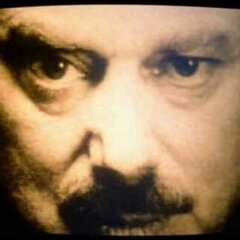
What things make you think?
Trappernicus replied to Diavolo's topic in Philosopher's Square's 2021 Topics
In HG Wells book 'The Time Machine' it describes a future place where society had been divided into two groups. The Eloi and the Morlocks. The Eloi were an effeminate group. Not suited to hard work and living a pampered and privileged life. While the Morlocks were a brutal physical group able to do the labour that kept the Eloi society fed and sheltered. These two in many ways reflected the two societies that were evidenced at the time Wells wrote the book. The working class which did so out of sight. In some cases they worked in the cellar or basement of shops. Perhaps Wells was describing what could happen if things kept developing as they had been. The gap between the two becoming too vast for them work work together. In the experiment with them ice the two groups could also reflect the Eloli and Morlocks. The ones at the top of the structure spent all their time grooming while the ones at the bottom became aggressive. Humanity seems to have a tendency to revert to these two base mindsets. I am reminded at this point of the book The Lord of the Flies. The same division was created between the two groups of boys. Any thoughts or considerations? 🦊 -
Applepies joined the club
-

What things make you think?
Diavolo replied to Diavolo's topic in Philosopher's Square's 2021 Topics
Unlimited food, but reduced habitat. To be honest, I dare not draw conclusions knowing that you can better illustrate the point -

What things make you think?
Trappernicus replied to Diavolo's topic in Philosopher's Square's 2021 Topics
An experiment with mice found that given unlimited food and habitat the mice reached a point at which they stopped breeding and over time died off. -

What things make you think?
Diavolo replied to Diavolo's topic in Philosopher's Square's 2021 Topics
Where does the balance come from? What forces operate it? It would not be necessary to conceive before an egemonic justice, which has the sovereignty to define the good from the bad in order to execute a balance? and who or what operates that justice? As for the second thing that you comment, I consider that, with greater reason, those who suffer are the most empowered to do philosophy. I mean the nonconformists. Did you know that when a starfish finds a place with a lot of resources, and settles there, it begins to eat its brain? Well, it seems to me that the same thing happens to those who settle in the world satisfying themselves with what they think they know. -

What things make you think?
Trappernicus replied to Diavolo's topic in Philosopher's Square's 2021 Topics
For me there has always been a balance. For every good thing that happens I can expect and equally bad thing to take place. o in answer to your question, it is an accepted condition that even perfect love has a use by date. As for Philosophy? Is philosophy only relevant to those who have the leisure to explore it? The people who live a safe and pampered life seem to have the time and leisure to sit back and ask any questions that come to mind. While those struggling to survive are too embittered and distracted by pain to bother? 🦊 -
Have you ever loved so much that you are afraid to ask: when is this going to end? Why does it have to end? Is there anything I can do to put off the inevitable? Is every end really inevitable? There are moments when philosophy robs us and we cannot avoid it: the punishment against someone who follows the law; of an innocent, the death of a loved one, the reason behind the sacrifice we make in order to get what we want ... What things make you think?

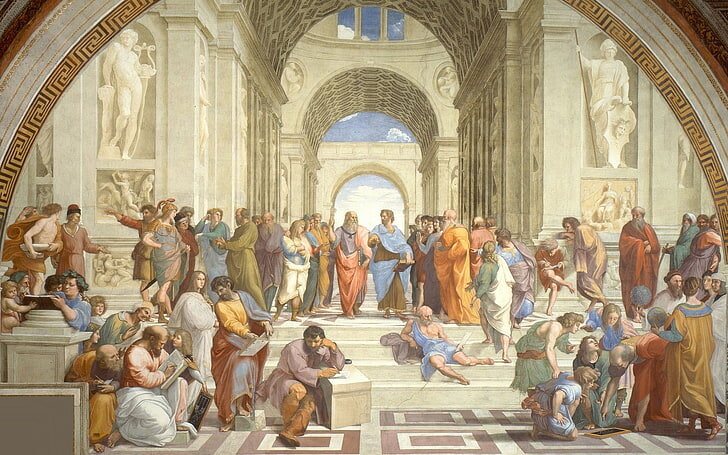







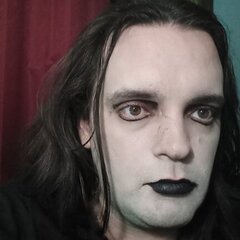
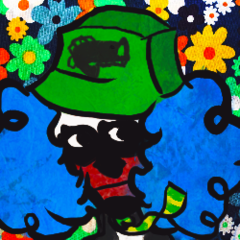






(1)(1).thumb.jpg.f5df18de2694b2be296860e67ba98e50.jpg)
